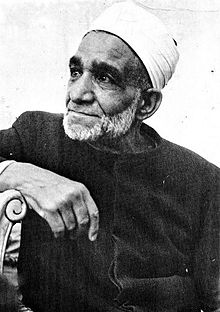- Visitor:117
- Published on:
Who is a Disbeliever or Kafir?
A disbeliever or Kafir is not simply ‘atheist’ having no belief in ‘God’. After all, there will be hardly any religion in the world which does not prescribe a belief in the God in one form or another. An atheist is obviously a Kafir. But anyone having faith in any god but Allah is also a Kafir. Moreover, if one believes in Allah in tandem with any other god or idol is still is Kafir.

It becomes amply clear from the (foregoing) Ayats that a believer is one who believes in Allah, the Angels, the prophets, the Quran and the Last Judgement Day: a disbeliever is one who has not accepted these tenets of Islam. Allah’s guidance, love, help, mercy, pardon, favor, reward, heaven, victory in battles are all bestowed upon the believers. The Quranic position is that to be a believer is good, right, just, true virtuous, righteous, kind, humble, blessed, humanitarians and so on; to be a disbeliever is the very antithesis of all this. Since disbelief itself is the worst sin, it is Allah’s desire, goal and scheme to completely eradicate it.
It is Allah’s declaration that disbelief is the greatest disobedience, ingrateness, rebellion, ignorance, injustice, evil, sin, wrong and crime. In Ayat 34:31, those who do not have faith in the Quran and earlier Books of Allah are called ‘wrong/doers/unjust’; in Ayats 34:32 and 41:41;45:31 those who do not accept the Prophet’s guidance are termed as ‘guilty’ and in 35:36 the disbelievers are described as ‘ungrateful/ingrate’. The Quran, therefore, declares that disbelievers are enemies of Allah and hence also of righteousness.
However much the disbelievers dislike, protest against or oppose Islam, it has been declared that Allah will cause Islam to prevail over all other faiths in the world. The means and ways planned by Allah are various depending upon circumstances and responses of the disbelievers. In this context, the Quran advises the believers; “If they have the upper hand of you, they will be your foes, and will stretch out their hands and their tongues toward you with evil (intent) and they long for you to disbelieve.” (60:2)
Obviously, it became necessary to ensure that the disbelievers do not gain an upper hand. Therefore, steps like warning the disbelievers, instilling in their minds the fear of calamities, urging the disbelievers to unite in a brotherhood, striving against the disbelievers, helping and making the believers victorious are all part of this divine scheme.
Although Allah is the only God for the whole mankind He does not like an individual or a society to behave as they please. While everybody has freedom to behave as he likes, the outcome of this freedom is not exempt from His punishment. If it goes against Allah’s Will, he becomes liable for His punishment. Allah insists on specific principles, opinions, beliefs, teachings and conduct. To accept Allah or ‘to believe in Allah’, is to accept all these specifics. Faith in Allah is equated with faith in truth, good deed, morality, justice, kindness, humanity and such other virtues.
To achieve the eligibility and capacity of being virtuous, it is necessary, as a pre-condition, to have the faith in Allah. In others words, one may become so virtuous but only after embracing Islam. The Quran proclaims repeatedly that: “Allah rewards those who believe and do good (deeds).” Here the word ‘and’ (and not or) has been used, and in view of the Quranic stand, it is correct.

The Ayats quoted above also make it clear that although Allah, the Quran and the Prophet are different terms, they are so intimately entwined with each other in respect of their meaning, purport, essence and teaching that they cannot be separated from each other. The commands of Allah and of the Prophet are not different as both are of equal weight as per the Quran. Hence, in effect, the teaching of all these three is but one and the same; in practice rejection or violation of one is the same as that of all the three. For this reason, Jews and Christians, in spite of their faith in Allah alone, were viewed as disbelievers. In this regard, M. Mawdudi states: “They might well be believers in the existence of God. But their concept of God is so erroneous that their belief is no better than disbelief.” (117-204)
Thus, not the term ‘Allah’ by itself but what he commands and teaches is really important. Because some teachings of the ‘God’ of the Jews and the Christians are different from that of Allah, the former is not regarded as ‘Allah’ of the Quran. The same can be said of the gods of polytheists/idolaters. In short, to believe in Allah, one has to believe in both the Prophet Muhammad and the Quran. Also it is not for the believer to make distinction between Allah and His Prophets.
This amount to disbelief. (4:150,1) as the Jews believed in some part of the Quran, it is said to them: “Do you believe in a part of the Scripture and disbelieve in other? What then is the reward of those who do so except ignominy in the life of the world, and on the day of Resurrection they will be consigned to the most grievous doom.’ (2:85) So the believer must believe in every Surah, Ayat, word and letter of the Quran as the revelation of Allah. The Prophet has said: “Controverting about the Quran is disbelief.” (Hadis: D. 4586) This is why Muslim society does not acknowledge a born but innovative and reformist Muslim as a Muslim.
A disbeliever or Kafir is not simply ‘atheist’ having no belief in ‘God’. After all, there will be hardly any religion in the world which does not prescribe a belief in the God in one form or another. An atheist is obviously a Kafir. But anyone having faith in any god but Allah is also a Kafir. Moreover, if one believes in Allah in tandem with any other god or idol is still is Kafir.
As for the saying of the Jews and the Christians that Allah had a son, the Quran says; “Assuredly you utter a disastrous thing, whereby the heavens are almost torn and the earth is split asunder and the mountains fall in ruins, that you ascribe unto the Beneficent a son.” (19:89-91) Thus the ‘God’, that is to be considered is the One revealed in the Quran and not any other god or Lord. The Quran categorically considers the latter as a false God. Many do not realize this and mistakenly (or intentionally) equate Kafir with ‘atheist’. In short, the Quran has specified and declared Which God is true and which is false; that decision is not left to the individual’s choice.
A few examples may be cited to illustrate how incorrect meanings are derived. Dr. Rafiq Zakaria explains why ‘Hindus’ are not Kafirs: “It (i.e. the word Kafir) is derived from the word Kufr which literally means ‘to hide’ or ‘cover up’. And Kafir means one who hides or covers up the supremacy of God. How can it then apply to those Hindus who believe in God and accept His Oneness and supremacy?” (146-105) His conclusion is that those non-Muslims who believe in One God, by whatever name, are not Kafirs. Abdul Kadar Mukadam also says that the word Kafir was employed to describe the Arab idolaters and is not applicable to (idol-worshipping) Hindus in India. (128-133) A.A. Engineer too offers the same arguments. (16-126) in arriving at this conclusion none of these scholars takes cognizance of the mandatory belief in the Quran and the Prophet.
Taking the cue from such misinterpretations of Islamic scholars, even Hindu scholars have been toeing a similar line. For example, Kanayalal Talreja says: “Kafir means denial or disbelief. Kafir means one who denies or disbelieves in religion. What does religion mean? Religion means truth, morality, ethics and humanity. Religion signifies love-pure selfless love for all creatures of the cosmos. A Kafir is he, who lacks a loving heart, who torments and tortures others either on account of his selfish motive or his erroneous religious doctrines based on blind faith and bigotry… He, who does not realize affliction and agony of others as his own, is an atheist. An infidel is he, who sucks the blood of his fellow-beings, and exploits their ignorance and illiteracy, gullibility and poverty.” (128-xxiv) Needless to state, this is poetic fancy running wild, not scholarship founded on a proper study of the Quran.

M. Maududi in his popular book, of which over a million copies were sold, makes Islam’s stand explicit on the issue of Kufr and Kafir. Every man, he says, is born as a ‘Muslim’. All creatures including the sun, the moon, the earth, stones, trees, animals, men are born Muslims. ‘Muslim’ means one who obeys the laws of God (i.e. Allah). Every man is free to choose Islam or Kufr. (84-14 to 23) About the consequence of choosing Kufr, he further says: “Kufr is a form of ignorance, or rather, it is ignorance. What ignorance can be greater than to be ignorant of God…? Not only that, Kufr is tyranny, the worst of all tyrannies… Anyone who… resorts to Kufr perpetrates the greatest injustice… Kufr is not mere tyranny; it is rebellion, ingratitude and infidelity… So what can be greater betrayal, ingratitude, rebellion and treason than Kufr…?
(By this) man treads the path of ruin and disgrace… Such a rebel will never find the thread of real knowledge and vision… Such a man’s intellect and reason always run astray… Such a man will meet failures in all the affairs of his life… (In Hereafter) he will be held guilty for the crimes (of Kufr) he committed against his nature… These are evils and disadvantages of Kufr.” (84-20 to 22) (similarly: – 518,9, Hadis Nos. 1-4)
M. Maududi further depicts a Muslim who had preferred Islam to Kufr:” Having acknowledged Him as you Master and Ruler, if you refuse to obey Him you become a self-admitted rebel. Along with faith in God, you believe that the Quran is God’s Book. This means that you have admitted all the contents of the Quran to be from God. Thus it becomes your bounden duty to accept and obey whatever is contained in it. Along with that, you have admitted Muhammad to be God’s Messenger, which means that you have admitted that each and every one of his orders and prohibitions are from God. After this admission, obedience to him becomes your duty.” (87) It follows that he who does not follow this, commits the sin of ‘Kufr’ and hence becomes ‘Kafir’. He defines ‘Kafir’ thus: ‘Kafir’ signifies one who denies or rejects the Truth, i.e. who disbelievers in the message of the Prophets.
Since the advent of Muhammad, anyone who rejects his Message is a Kafir.” (117-282) In the ‘Quran Majid’ the commentator has given one meaning of ‘Kafir’ as: “One who denies Islam.” (129-1227) The same interpretation may be found in the ‘Dawatul-Quran’. (41-2306)
The Quran clearly states: “Therefore invoke not with Allah another god, lest you be one of the doomed.” (26:213) The ‘Dawatul’ Quran’ comments on this Ayat: “Polytheism is a sin that cannot be excused.” (40-1275)
A great and renowned theologian, Alama Mufti Muhammad Kifayatullah, has authoritatively held that “Those who do not believe in Allah, are called Kafirs… Those who worship objects other than Allah, or believe in two or three gods are called Kafirs or polytheists… He who refuses to believe Muhammad to be the Prophet of Allah, is a Kafir.” (85-1/6,8) He also expounds that ‘faith in the Prophet’ means accepting him as the Prophet of Allah and obeying all his commandments. (8) He was Asked: “Can a person commit sins and still be a Muslim?” He clarified that, “Anybody committing a sin which involves Kufr or shirk does not remain a Muslim, but turns an unbeliever or a polytheist.” (85-4/27)
Regarding punishment, he states: “The Polytheists shall never attain salvation. They shall, instead, be doomed to eternal punishment and affliction.” (1/6) “Can ever a sinner who dies without repentance, go to heaven?” He answered: “All persons who have committed sins other than polytheism and unbelief will go to heaven on completion of punishment. It is also not unlikely that Allah will forgive all sins except those of polytheism and unbelief.” (4/28) Obviously, this interpretation is based on the commands of the Quran. To sum up, according to Islam, one who does not believe in even one of the five basic beliefs (-228), he becomes a disbeliever or Kafir, Kafir and ‘atheist’ are not synonymous terms.

Another authority, Mahmud Shaltout, Member of Grand Ulema, Professor of Comparative Law, Al-Azhar University, Cairo, Egypt, rightly says: “Infidelity includes (any) doubt in God’s oneness and Divinity. Therefore, those who denounce the Creator, and those who worship other than God, and those who disagree with God’s legislation as to that which is legitimate or illegitimate are all infidels (disbelievers).” (203-130)
Source: Islam Maker of the Muslim Mind – Sheshrao More, Rajhans Prakashan, 2004
- 58 min read
- 2
- 0










